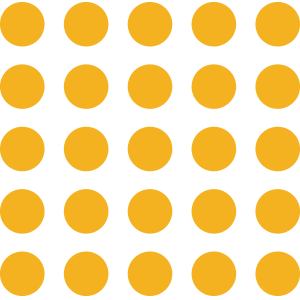fbf/laravel-pages
A Laravel 4 package for adding simple content managed pages to a website with banner image, heading, main image or YouTube video and body content.
Downloads
Stars
Version
Laravel-Pages
A Laravel 4 package for adding simple content managed pages to a website with banner image, heading, main image or YouTube video and body content.
Features
- Pages can be draft or approved
- They have a published date that you can set in the future for delayed/scheduled publishing
- Page uris are automatically generated from the page heading on create, but can be edited
- Page uris can include '/' to denote sections of a website
- Configurable route matching pattern (by default it's everything except the root route, i.e. '/')
- Control page title, meta description and keywords for SEO purposes
- Uses soft deletes in case you need to retrieve old content
- Configure the rendered view so you can use one in your app rather than the one in the package
- Make use of 2 partials in your own view so you can add extra stuff around the banner image and the content area
Comes with a
- Migration for creating the fbf_pages table
- Model, controller and view (main view and 2 partials for content and banner image)
- Built in route (currently catches anything from the root of the site, so include the ServiceProvider last in the list if other packages have routes that this would interfere with)
- Service provider that automatically registers the eloquent sluggable package
Installation
Add the following to you composer.json file
"fbf/laravel-pages": "dev-master"
Run
composer update
Add the following to app/config/app.php
'Fbf\LaravelPages\LaravelPagesServiceProvider'
Publish the config
php artisan config:publish fbf/laravel-pages
Run the migration
php artisan migrate --package="fbf/laravel-pages"
Create the relevant image upload directories that you specify in your config, e.g.
public/uploads/packages/fbf/laravel-pages/banner/originals
public/uploads/packages/fbf/laravel-pages/banner/resized
public/uploads/packages/fbf/laravel-pages/main/originals
public/uploads/packages/fbf/laravel-pages/main/resized
Configuration
Check out the options in the src/config/config.php file
Routes configuration
By default, the routes file from the package will be automatically included, which matches all routes except the homepage.
However, the default route in the package will also override any of your app/routes.php routes.
To avoid this, if you have app routes, you can configure it to not use the package's built-in routes file, and then just copy the routes from the package to your own app/routes.php file, but after your existing routes.
Administrator
You can use the excellent Laravel Administrator package by frozennode to administer your pages.
http://administrator.frozennode.com/docs/installation
A ready-to-use model config file for the Page model (pages.php) is provided in the src/config/administrator directory of the package, which you can copy into the app/config/administrator directory (or whatever you set as the model_config_path in the administrator config file).
Extending
Let's say each page in your site can have a testimonial on it.
- After installing the package you can create the testimonials table and model etc (or use the fbf/laravel-testimonials package)
- Create the migration to add a testimonial_id field to the fbf_pages table, and run it
<?php
use Illuminate\Database\Schema\Blueprint;
use Illuminate\Database\Migrations\Migration;
class LinkPagesToTestimonials extends Migration {
/**
* Run the migrations.
*
* @return void
*/
public function up()
{
Schema::table('fbf_pages', function(Blueprint $table)
{
$table->integer('testimonial_id')->nullable()->default(null);
});
}
/**
* Reverse the migrations.
*
* @return void
*/
public function down()
{
Schema::table('fbf_pages', function(Blueprint $table)
{
$table->dropColumn('testimonial_id');
});
}
}
- Create a model in you app/models directory that extends the package model and includes the relationship
<?php
class Page extends Fbf\LaravelPages\Page {
public function testimonial()
{
return $this->belongsTo('Fbf\LaravelTestimonials\Testimonial');
}
}
- If you are using FrozenNode's Administrator package, update the pages config file to use your new model, and to allow selecting the testimonial to attach to the page:
/**
* The class name of the Eloquent model that this config represents
*
* @type string
*/
'model' => 'Page',
...
'testimonial' => array(
'title' => 'Testimonial',
'type' => 'relationship',
'name_field' => 'title',
),
- Finally, update the IoC Container to inject an instance of your model into the controller, instead of the package's model, e.g. in
app/start/global.php
App::bind('Fbf\LaravelPages\PagesController', function() {
return new Fbf\LaravelPages\PagesController(new Page);
});
